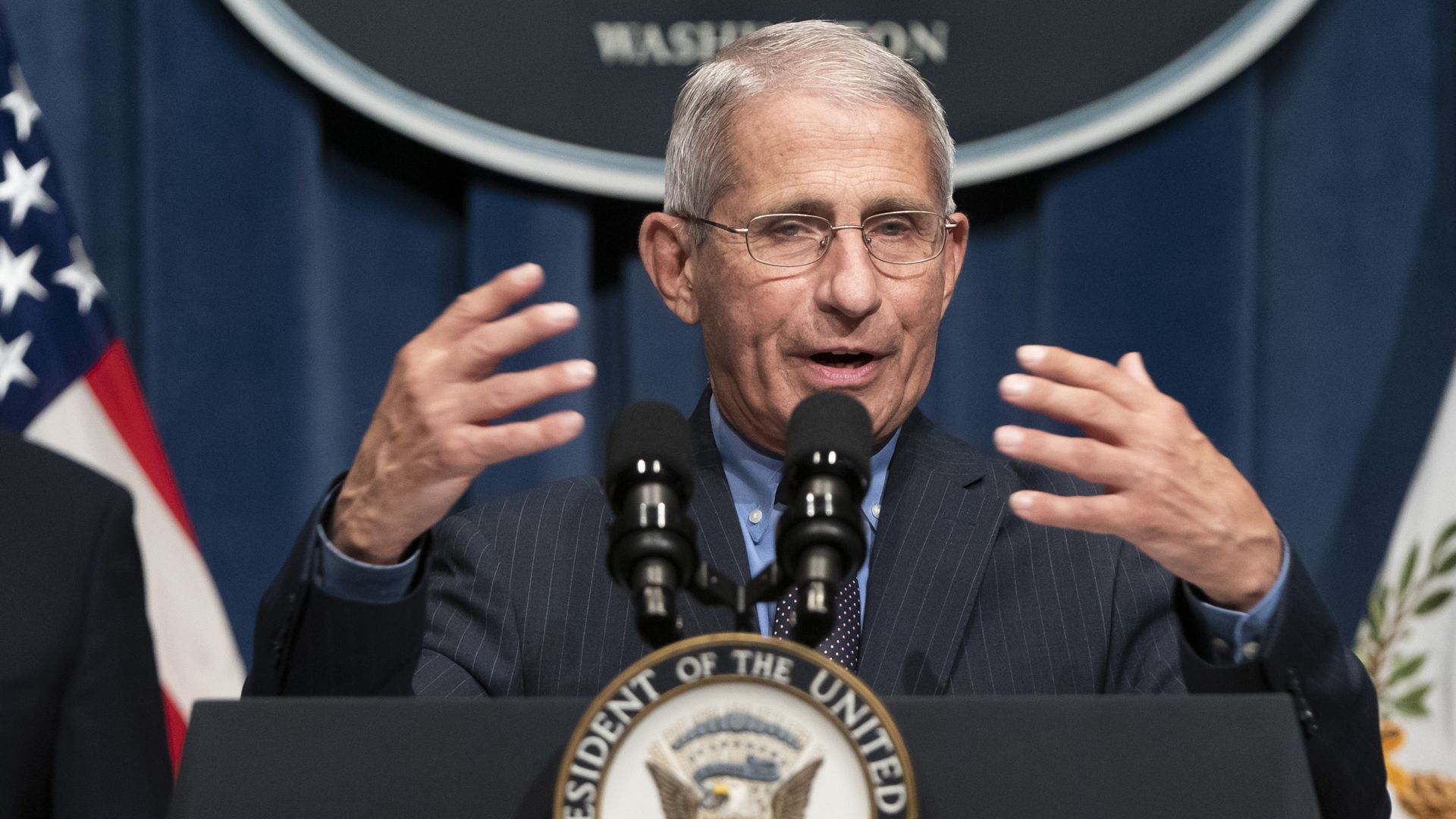Fauci: Coronavirus vaccine may not be enough to achieve herd immunity in U.S.
Add Axios as your preferred source to
see more of our stories on Google.

Director of the National Institute of Allergy and Infectious Diseases Anthony Fauci during a White House Coronavirus Task Force briefing on Friday. Photo: Joshua Roberts/Getty Images
NIAID director Anthony Fauci said during an interview at the Aspen Ideas Festival broadcast Sunday night he'd settle for a "70, 75% effective vaccine" against the novel coronavirus.
- But such resistance, along with some Americans' opposition to vaccinations, means the U.S. is "unlikely" to achieve herd immunity, the White House coronavirus task force member said during his interview with CNN's Elizabeth Cohen.
"There is a general anti-science, anti-authority, anti-vaccine feeling among some people in this country — an alarmingly large percentage of people, relatively speaking."— Fauci
Why it matters: Access to vaccines is needed to build herd immunity, whereby "a sufficient proportion of a population is immune to an infectious disease (through vaccination and/or prior illness) to make its spread from person to person unlikely," per the CDC.
- Health and Human Services Secretary Alex Azar told CNN Sunday that the "window is closing" for the U.S. to take action and get the coronavirus under control, as cases spike across the country.
The big picture: Clinical trials are under way for three vaccines, with more than 70 others are in development, per the World Health Organization.
- Moderna said earlier this month that starting in 2021, it could manufacture "possibly up to 1 billion doses per year" of its experimental coronavirus vaccine with the help of a contract manufacturer.
What he's saying: In his interview with Cohen, Fauci said he remained "cautiously optimistic" that a vaccine for COVID-19 could be available by the end of the year or the start of 2021. But he noted "we have a lot of work to do" in educating people on the safety of vaccines amid disinformation from the anti-vaccination movement.
- On contact tracing, Fauci said, "I don't think we're doing very well. ... [communities should] get boots on the ground and to go out there and look for the people, instead of getting on a phone and doing so-called contact tracing by phone."
- But he added, "When you have community spread, it's insidious because there are so many people in the community who are infected but asymptomatic. So the standard classic paradigm of identification, isolation, contact tracing doesn't work no matter how good you are because you don't know who you're tracing."
- Fauci said another problem was crowds of people congregating without taking precautions against the coronavirus. "They're not physically distancing, and they're not wearing masks," he said. "That's a recipe for disaster."
By the numbers: Over 125,800 people have died from the virus in the U.S. and more than 2.5 million Americans have tested positive from almost 30.1 million tests, according to Johns Hopkins data.
Go deeper:
